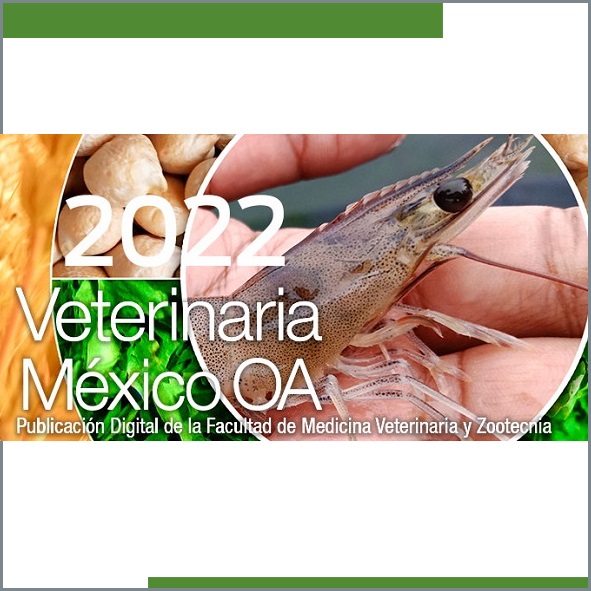Effects of dietary avocado meal on production performance, carcass traits, muscle fatty acid composition and gene expression of pigs
Main Article Content
Abstract
Dietary avocado meal (AM) may improve growth and muscle fatty acid composition in pigs due to the expression of genes. Transcriptome analysis of Longissimus dorsi muscle and liver and the effect of 0, 5 and 10 % AM in the feed of Landrace-Yorkshire pigs on growth, carcass, muscle fatty acid composition and blood metabolites were evaluated. Twenty-four castrated males with an initial weight of 55 ± 3 kg were distributed under a completely random design. Transcriptome analysis was carried out with massive sequencing, with EdgeR and DESeq2 methods for differentially gene expression (DGE; P ≤ 0.01, log2 fold change ≤ 1.5). We observed higher DGE in both tissues, with down log2 fold change, by including 5 or 10 % AM in the diet against AM0. Genes associated with lipid metabolism (down ANO3; up GOS2, MYLIP, PLIN4), growth (down FOS, MT1A, MT1D, PHGDH; up ARNTL) circadian clock (down DBP, NOCT, PER1, PER2, PER3, SIK1; up ARNTL), immune system (down CD163, CRP, OTUD1; up C1QTNF7, NFIL3) and antioxidative activity (up HP and NCF4) were observed. The inclusion of AM in the diets increased daily gain, feed intake, slaughtered body weight, carcass weight and ham (P < 0.05). Back fat was greater for AM10 (P < 0.001). AM in the diet decreased intramuscular fat and had less triglycerides in the blood (P < 0.05). AM10 in the diet modified the gene expression and quality of the IMF, had more linoleic acid, total fatty acids Ω6, ∑polyunsaturated fatty acids, PUFA/SFA, and PUFA/MUFA (P < 0.001)
Article Details
License

Veterinaria México OA by Facultad de Medicina Veterinaria y Zootecnia - Universidad Nacional Autónoma de México is licensed under a Creative Commons Attribution 4.0 International Licence.
Based on a work at http://www.revistas.unam.mx
- All articles in Veterinaria México OA re published under the Creative Commons Attribution 4.0 Unported (CC-BY 4.0). With this license, authors retain copyright but allow any user to share, copy, distribute, transmit, adapt and make commercial use of the work, without needing to provide additional permission as long as appropriate attribution is made to the original author or source.
- By using this license, all Veterinaria México OAarticles meet or exceed all funder and institutional requirements for being considered Open Access.
- Authors cannot use copyrighted material within their article unless that material has also been made available under a similarly liberal license.







